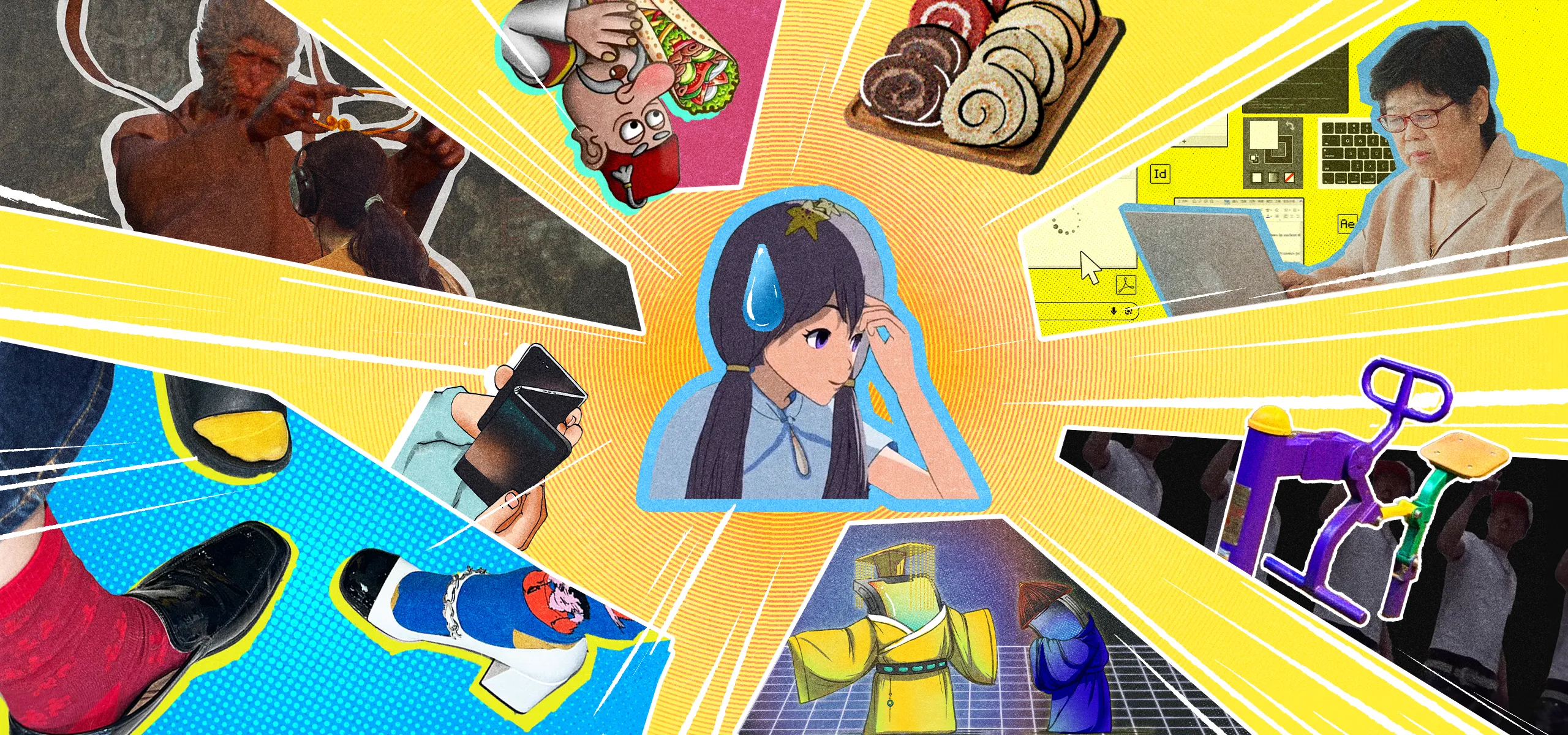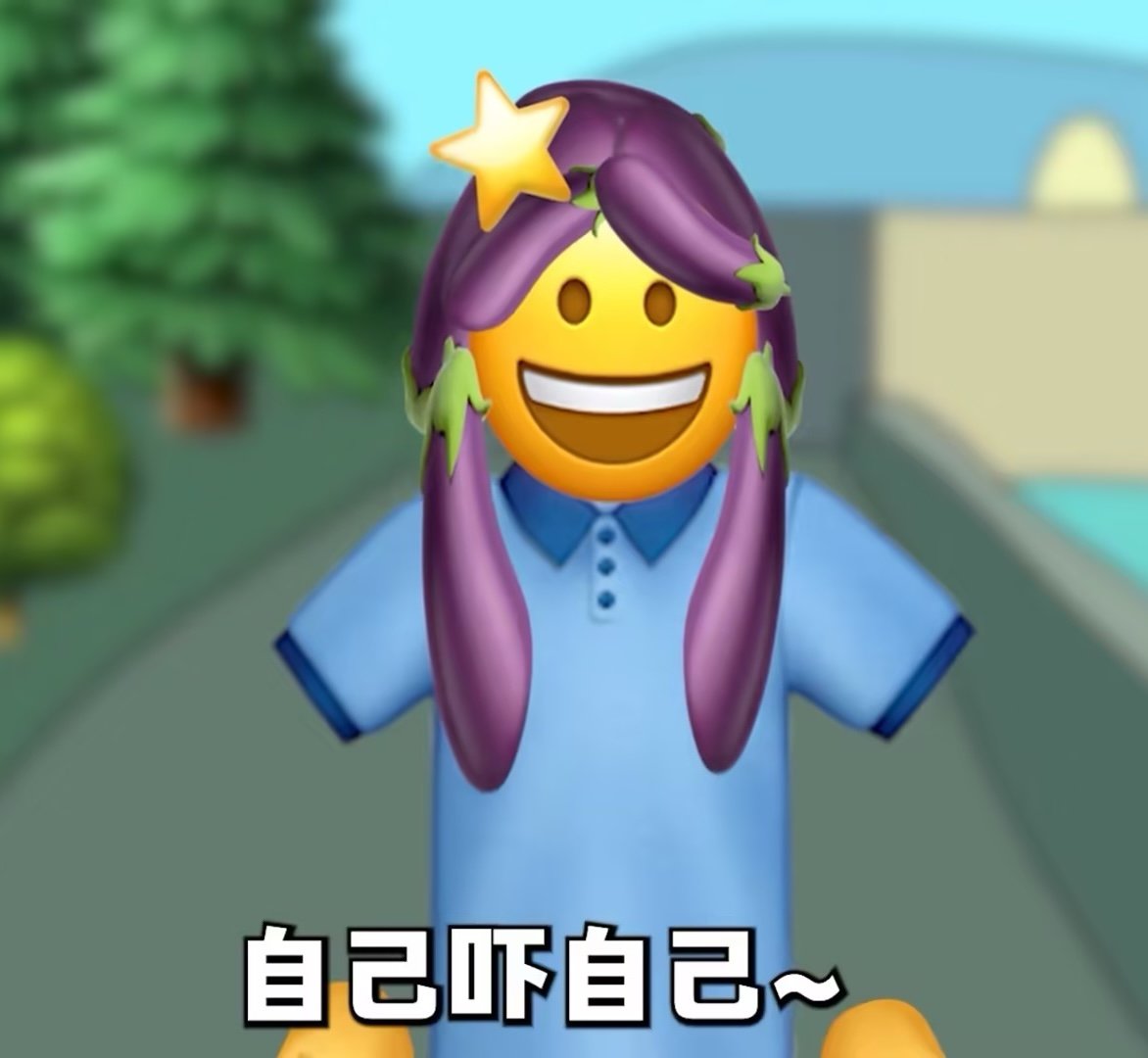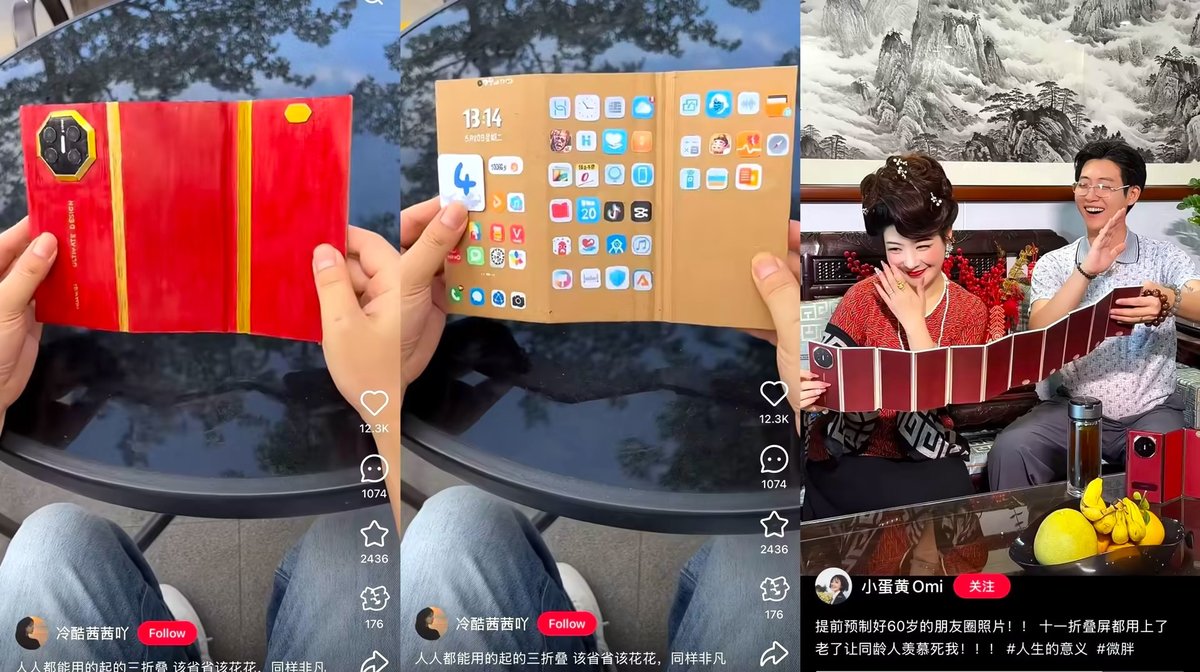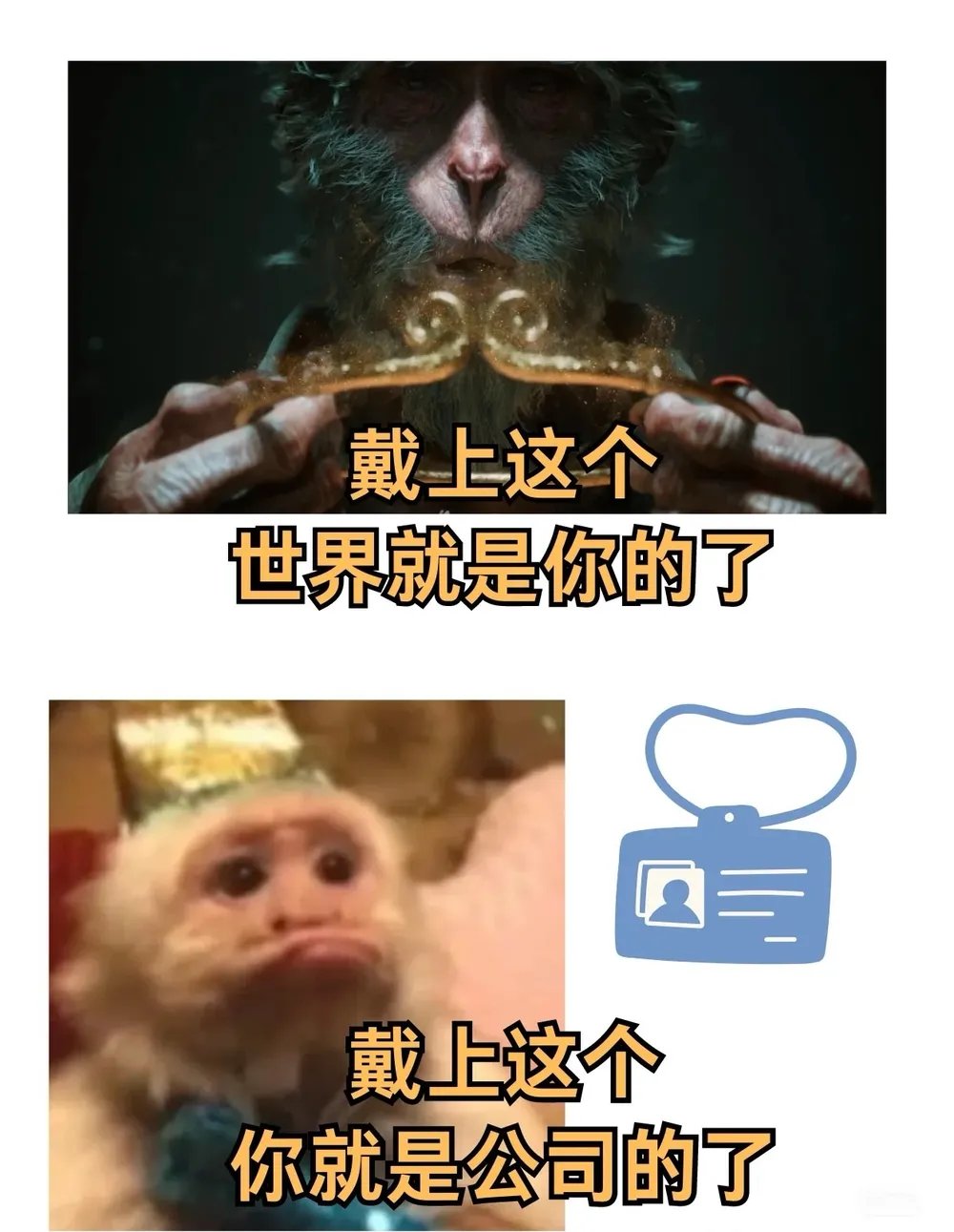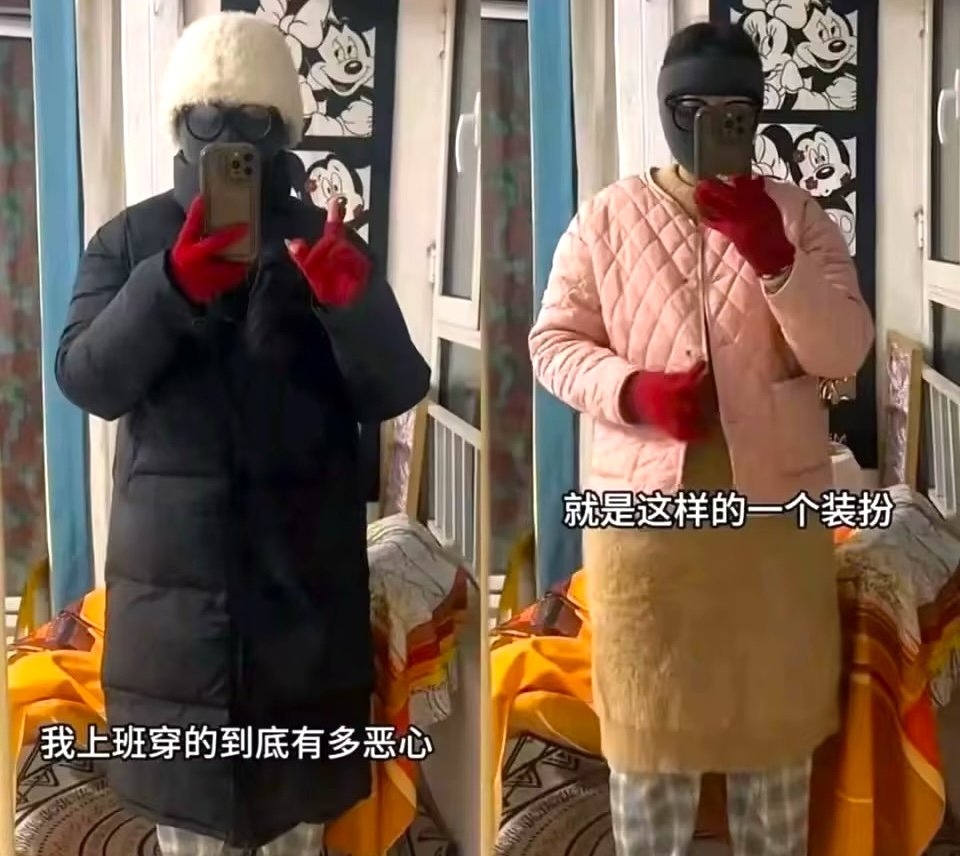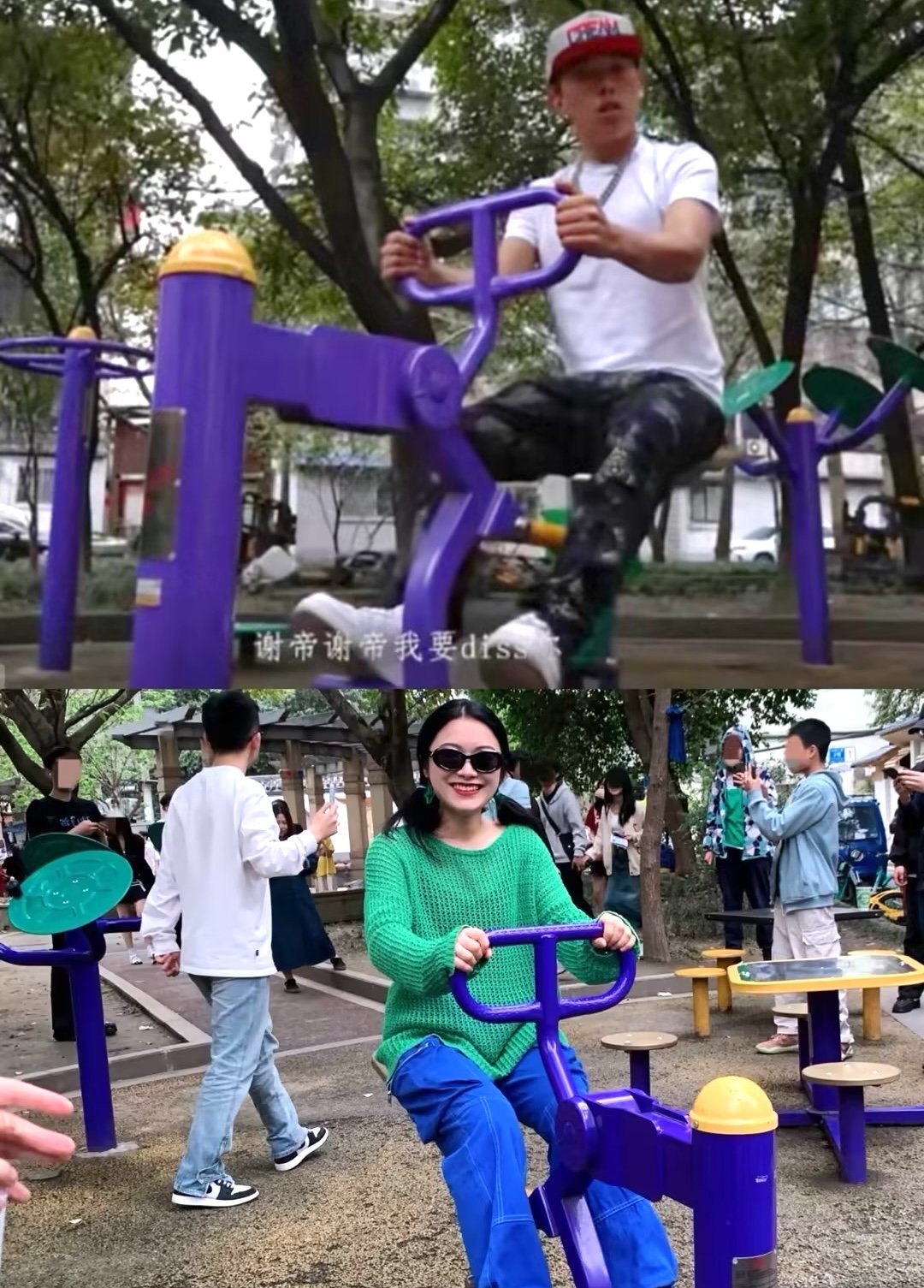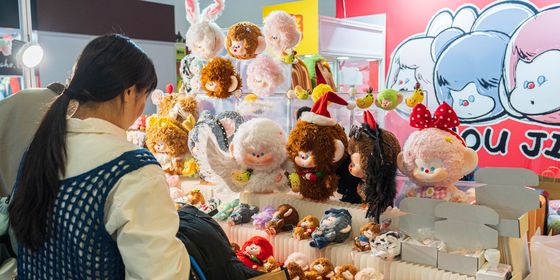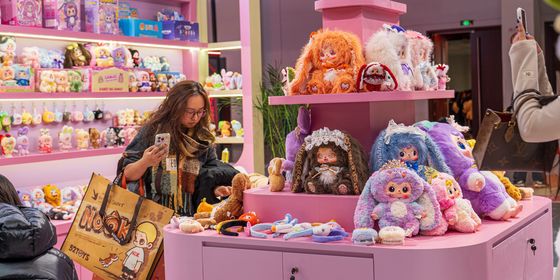From the viral “Chengdu Disney” to the rise of “retirement literature,” here are some of the funniest memes of 2024
Despite the challenges of a slowed economy, where many young Chinese face mounting pressures in the job market, humor remains a powerful escape. Memes have become a way for many to cope, celebrate shared struggles, and transform the mundane into moments of absurdity. Here’s our list of the viral moments of 2024:
I scared myself
Recently, Chinese netizens couldn’t read the phrase “I scared myself (自己吓自己)” without imagining hearing it in a young female voice with a peculiar tone. The catchphrase originates from the domestically produced animated film Mermaid Summer, released in late November. The 86-minute film was marketed as the work of a two-person team over a span of seven years. However, instead of receiving praise for their hard work, the team faced ridicule from disappointed audiences, with complaints ranging from an illogical storyline and poor-quality animation to absurd voiceovers.
One scene that went especially viral shows the heroine walking alone by a riverbank when she hears a noise. Turning around and seeing nothing, she says to herself in that distinctive tone, “I scared myself (自己吓自己),” moments before a man suddenly appears and pushes her into the river.
The stiff animation and high-pitched voiceover align perfectly with the viral concept of “abstract (抽象)”—a term used by young Chinese to describe feelings of bewilderment, confusion, or being utterly speechless in response to someone’s behavior. Many have taken it upon themselves to recreate the scene in real life or with improved, more normal-looking animation and voiceovers. One particularly popular version even remade the entire scene using only emojis.
Pre-made everything
While many Chinese netizens harshly condemn pre-made meals in restaurants, they seem less concerned when this “pre-made” mentality enters the cyber world. After all, for many, staying active on social media is a demanding task, yet it’s necessary to maintain one’s online presence in this digital era. This gave rise to the trend of “pre-made social media posts (预制朋友圈),” where individuals create content in advance and space out their posts over time. Some even boast, “One trip can create five years of social media content (出去玩一次,一次发五年).”
From fitness journeys, learning experiences, crafted workshops, and culinary adventures to travel vlogs and even pregnancy photos, everything can be pre-made in 2024. On social media, there are influencers taking up the challenge of “taking enough photos for seven days of posting in just one day (挑战一天拍完7天朋友圈 ).” But netizens are not oblivious about the truth behind these intricately crafted posts either, as a popular self-mockery goes: “Keep up the polished social media update, but enjoy a raw, unrefined life (拍精装朋友圈,享毛坯人生).”
Eight Swiss rolls
In late October, a stay-at-home mom bought a box of eight Swiss rolls, intending to share them with her husband and two kids. The kids happily devoured two each, and when her husband came home late, he polished off his share as well. But when she reached for the last two, he stopped her in her tracks. He reasoned that if she ate them, there’d be none left for the kids—and besides, parents should lead by example and cut back on snacks. Frustrated, she shared the recorded conversation with her husband on social media. The video quickly went viral online, sparking debates about the undervalued contributions of stay-at-home mothers and even becoming a litmus test for young women to gauge their boyfriends’ reactions. Many shared their significant others’ responses online, while others questioned the authenticity of the video, speculating it might have been staged. The woman has since taken down the original post but maintains that the incident was real.
Retirement literature
Starting in 2025 and due to be rolled out over the next 15 years, the statutory retirement age in China will be gradually increased from 60 to 63 for men, from 50 to 55 for women in blue-collar jobs, and from 55 to 58 for women in white-collar jobs. As seniors are busy calculating their delayed departure from offices, young urbanites began to lead a storm of contemporary retirement literature (退休文学), mocking the seemingly endless toil that lies ahead.
Young workers depict a future where they balance work and family in their 60s: At 65, I will have to squeeze onto the subway to get to work after dropping off my grandchildren at school. Some, however, see a silver lining, joking that they can work with perks: With the senior citizen bus pass, commuting will be free, and I can save on living costs. Beneath the humor and sarcasm lies a deeper anxiety about the future. The bittersweet quip that they’ll “finally pay off the mortgage, only to move straight into a nursing home” resonates with many young workers, reflecting a reality that more and more are beginning to confront.
Tri-fold life
In September, Huawei launched the world’s first tri-fold mobile phone, the Huawei Mate XT, attracting worldwide attention for its innovative design. However, the commercial for the phone unexpectedly became more viral than the product itself. In one of the ads, actress Yang Mi folds the phone while reading the slogan, “Tri-folds, no matter how you fold it, there’s always a [inter]face (三折叠,怎么折都有面),” which can also be interpreted as “no matter how you fold it, you’ll always look good.” The infectious slogan inspired numerous parodies online, with netizens recreating the tri-fold experience using everyday items, as the starting price of 19,999 yuan is out of reach for many. In short videos posted online, some folded pieces of cardboard with photos of smartphone interfaces stuck on them, while others taped together three iPhones or even had three people lying side by side before folding them on top of each other. The phone was also a popular group costume choice for Halloween this year.
Confronting Destiny
Few white-collar workers can escape China’s extreme “996” work culture, but on August 20, a regular Tuesday, many gamers took one precious day of their limited annual leave to prepare for the release of Black Myth: Wukong—gaming platform Steam showed over 1.5 million players active at the same time just hours after the game’s release. Netizens jokingly put down the game’s slogan, “Confronting Destiny (直面天命),” as their excuse for taking the day off, while players dubbed themselves “the person chosen by destiny (天命人).” Netizens have also compared the challenging game to the intensity of Chinese corporate culture. Earlier this year, a popular internet meme compared netizens to hapless “monkeys (吗喽, a Cantonese term).” And now, players are identifying with both roles: “I’m the Monkey King in Black Myth by night, a company slave by day (晚上黑悟空,白天务黑工),” goes one meme.
Cyber identity
Online, your identity is defined by yourself (身份是自己给的)! You can embrace the title of “cyber emperor (赛博皇帝)” by “reviewing electronic memorials (批阅电子奏章),”—the written reports once submitted to the Son of Heaven, now used as shorthand for the effort required to respond to messages or catch up on the latest news. Or, you can just indulge in the flattery of treacherous digital ministers (电子奸臣), who use their sycophantic tone to rationalize daily absurdities and praise others as esteemed emperors. For many, these roles provide a much-needed escape from the pressures of their daily life.
Some take it a step further, seeking parental intimacy from online influencers who play the role of “digital parents (电子父母).” The warmth and care these influencers provide—whether it’s a video trip to the supermarket with their children or choosing lunch spots—have captivated many young netizens who feel estranged from their own parents.
You swan, he frog! Abandon!
Chinglish used to carry negative connotations, even in China, but the tide turned when a wave of witty Chinglish comments comforting an expat went viral. When blogger YourKris shared two tearful photos with her boyfriend at the airport on the Chinese social media platform Xiaohongshu in August, Chinese netizens, mistakenly assuming it was a breakup, decided to use Chinese sayings to comfort her. Among them was “癞蛤蟆想吃天鹅肉,” meaning “a toad lusting after a swan,” which was humorously translated as “you swan, he frog.” Another comment read, “Men like taxi, one go, next come.” A different one simply said, “Abandon!” The original post ended up attracting more than 65,000 comments and 300,000 likes.
When screenshots of these comments were reposted on X, some were touched by the supportive sentiment behind the grammatically imperfect remarks, while others argued that they were unfair to her partner. Nevertheless, the phrase “You swan, he frog” left its mark on global pop culture as many netizens created memes featuring celebrity couples they personally didn’t support with the phrase.
Shawarma Legend
In contrast to the hundred-person team and years of detailed production behind Black Myth: Wukong, Shawarma Legend, which unexpectedly blew up on the Chinese internet in September, is much simpler. The game isn’t much different from other restaurant simulators—players must manage a hectic restaurant, preparing and delivering meals to customers on time. However, Shawarma stands out for its catchy theme song and voiceover in slightly awkward Mandarin. Many can’t get the tune out of their heads for days and find themselves unconsciously humming the lyrics of the theme song: “Shawarma, oh Shawarma, oh Shawarma! Life’s better with you, no need for drama. (沙威玛,哦沙威玛,哦沙威玛!有了你,生活美好,没烦恼~)” However, this almost brainwashing song isn’t a human creation but the product of generative AI. Many of the game’s features—ranging from illustrations and voiceovers to songwriting—were all created by AI. Most evidently, some character illustrations have only four fingers, as hands are tricky for AI to generate perfectly. On the plus side, with the help of AI, the game’s localization surpasses that of many big productions, offering 14 language options. For many exhausted Chinese “corporate livestock,” Shawarma is a simple enough game for players to unwind. Besides, who doesn’t like being called a legend?
Disgusting outfits
When the hustle and bustle of overwork bring the dreaded scent of work smell (班味), a new wave of self-expression takes over weary young urbanites. Forget stylish looks, the new OOTD motto celebrates the uncoordinated, inconsistent, and ugly clothes.
Dubbed “disgusting work outfits (上班恶心穿搭),” this trend reflects the financial pressures and long working hours faced by young white-collar workers, while also echoing their carefree spirit of lying flat (躺平). It’s also seen as a form of rebellion, expressing their alienation from modern work. Videos of users showing off their ugly outfits—ranging from cartoon cotton socks and black high heels to pajamas with knee-high boots—have garnered millions of views on Douyin, China’s version of TikTok.
The rebellious office life quickly evolved into a playful competition, with colleagues vying for the most outrageous outfit of the day. After all, ugly may be the ultimate form of chic, as one commented on Xiaohongshu revealing the truth behind the outfit: “Dressing well won’t get you a raise.”
Chengdu Disney
China’s most unexpected—and perhaps dumbest—viral travel destination this spring has nothing to do with the American entertainment giant, despite the name “Chengdu Disney” suggesting otherwise. Instead, the “resort” in Chengdu, Sichuan province, gained fame thanks to a diss track by Sichuan rapper A’eryida, better known as Nuomi. After being eliminated in the first round of the popular reality show The Rap of China, Nuomi took aim at one of the show’s mentors, Xie Di, through a music video posted on Douyin (China’s version of TikTok) on March 26. In one scene, Nuomi rides a piece of fitness equipment, thrusting his waist to the beat while singing, “I want to diss you (我要diss你),” a phrase that sounds like “I want Disney (我要迪士尼)” in Chinese. The video quickly went viral online, drawing hundreds of young people who lined up to recreate the scene during the Qingming Festival holiday in early April.
Unsurprisingly, noise complaints were filed. However, instead of shutting down the attraction, local authorities simply prohibited singing, and organized volunteers to maintain order on-site. “Chengdu Disney” is perhaps the pinnacle of daka (打卡) tourism, where travelers visit internet-famous, social media-friendly spots purely for the experience of “checking in.”
Unfortunately, as the buzz faded, the fitness equipment was removed during a renovation of the compound in November, according to multiple posts on the social media platform Xiaohongshu.





